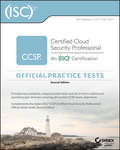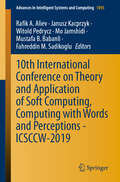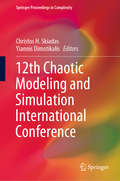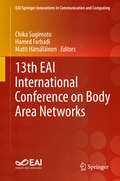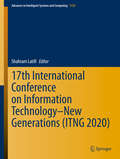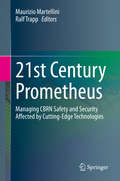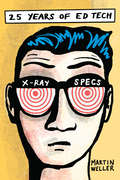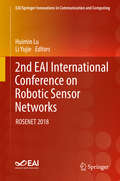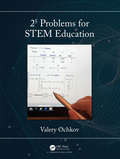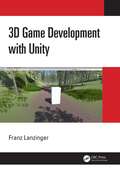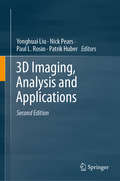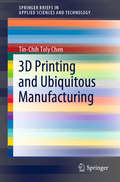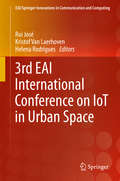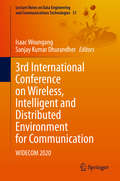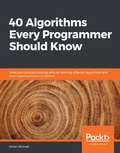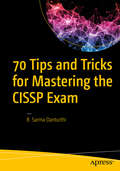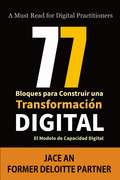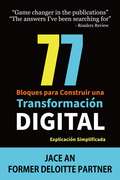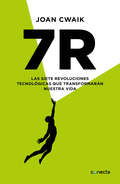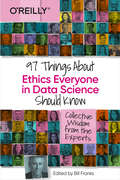- Table View
- List View
(ISC)2 CCSP Certified Cloud Security Professional Official Practice Tests
by Ben MalisowThe only official CCSP practice test product endorsed by (ISC)² With over 1,000 practice questions, this book gives you the opportunity to test your level of understanding and gauge your readiness for the Certified Cloud Security Professional (CCSP) exam long before the big day. These questions cover 100% of the CCSP exam domains, and include answers with full explanations to help you understand the reasoning and approach for each. Logical organization by domain allows you to practice only the areas you need to bring you up to par, without wasting precious time on topics you’ve already mastered. As the only official practice test product for the CCSP exam endorsed by (ISC)², this essential resource is your best bet for gaining a thorough understanding of the topic. It also illustrates the relative importance of each domain, helping you plan your remaining study time so you can go into the exam fully confident in your knowledge. When you’re ready, two practice exams allow you to simulate the exam day experience and apply your own test-taking strategies with domains given in proportion to the real thing. The online learning environment and practice exams are the perfect way to prepare, and make your progress easy to track.
10th International Conference on Theory and Application of Soft Computing, Computing with Words and Perceptions - ICSCCW-2019 (Advances in Intelligent Systems and Computing #1095)
by Witold Pedrycz Janusz Kacprzyk Mo Jamshidi Rafik A. Aliev Fahreddin M. Sadikoglu Mustafa B. BabanliThis book presents the proceedings of the 10th Conference on Theory and Applications of Soft Computing, Computing with Words and Perceptions, ICSCCW 2019, held in Prague, Czech Republic, on August 27–28, 2019. It includes contributions from diverse areas of soft computing and computing with words, such as uncertain computation, decision-making under imperfect information, neuro-fuzzy approaches, deep learning, natural language processing, and others. The topics of the papers include theory and applications of soft computing, information granulation, computing with words, computing with perceptions, image processing with soft computing, probabilistic reasoning, intelligent control, machine learning, fuzzy logic in data analytics and data mining, evolutionary computing, chaotic systems, soft computing in business, economics and finance, fuzzy logic and soft computing in earth sciences, fuzzy logic and soft computing in engineering, fuzzy logic and soft computing in material sciences, soft computing in medicine, biomedical engineering, and pharmaceutical sciences. Showcasing new ideas in the field of theories of soft computing and computing with words and their applications in economics, business, industry, education, medicine, earth sciences, and other fields, it promotes the development and implementation of these paradigms in various real-world contexts. This book is a useful guide for academics, practitioners and graduates.
12th Chaotic Modeling and Simulation International Conference (Springer Proceedings in Complexity)
by Christos H. Skiadas Yiannis DimotikalisGathering the proceedings of the 12th CHAOS2019 International Conference, this book highlights recent developments in nonlinear, dynamical and complex systems. The conference was intended to provide an essential forum for Scientists and Engineers to exchange ideas, methods, and techniques in the field of Nonlinear Dynamics, Chaos, Fractals and their applications in General Science and the Engineering Sciences. The respective chapters address key methods, empirical data and computer techniques, as well as major theoretical advances in the applied nonlinear field. Beyond showcasing the state of the art, the book will help academic and industrial researchers alike apply chaotic theory in their studies.
13th EAI International Conference on Body Area Networks (EAI/Springer Innovations in Communication and Computing)
by Matti Hämäläinen Chika Sugimoto Hamed FarhadiThe papers in this proceeding discuss current and future trends in wearable communications and personal health management through the use of wireless body area networks (WBAN). The authors posit new technologies that can provide trustworthy communications mechanisms from the user to medical health databases. The authors discuss not only on-body devices, but also technologies providing information in-body. Also discussed are dependable communications combined with accurate localization and behavior analysis, which will benefit WBAN technology and make the healthcare processes more effective. The papers were presented at the 13th EAI International Conference on Body Area Networks (BODYNETS 2018), Oulu, Finland, 02-03 October 2018.
17th International Conference on Electrical Bioimpedance: ICEBI 2019, Joinville, Santa Catarina, Brazil, 9-14 June 2019 (IFMBE Proceedings #72)
by Pedro Bertemes-FilhoThis book gathers the proceedings of the 17th International Conference on Electrical Bioimpedance (ICEBI 2019), held on June 9-14, in Joinville, Santa Catarina, Brazil. The chapters cover the latest knowledge and developments concerning: sensors and instrumentation to measure bioimpendance, bioimpedance imaging techniques, theory and modeling and bioimpendance, as well as cutting-edge clinical applications of bioimpendance. All in all, this book provides graduate students and researchers with an extensive and timely snapshot of current research and challenges in the field of electrical bioimpendance, and a source of inspiration for future research and cross-disciplinary collaborations.
17th International Conference on Information Technology–New Generations (Advances in Intelligent Systems and Computing #1134)
by Shahram LatifiThis volume presents the 17th International Conference on Information Technology—New Generations (ITNG), and chronicles an annual event on state of the art technologies for digital information and communications. The application of advanced information technology to such domains as astronomy, biology, education, geosciences, security, and healthcare are among the themes explored by the ITNG proceedings. Visionary ideas, theoretical and experimental results, as well as prototypes, designs, and tools that help information flow to end users are of special interest. Specific topics include Machine Learning, Robotics, High Performance Computing, and Innovative Methods of Computing. The conference features keynote speakers; a best student contribution award, poster award, and service award; a technical open panel, and workshops/exhibits from industry, government, and academia.
21st Century Prometheus: Managing CBRN Safety and Security Affected by Cutting-Edge Technologies
by Maurizio Martellini Ralf TrappThis book describes the evolving CBRN risk landscape and highlights advances in the “core” CBRN technologies, including when combined with (improvised) explosive devices (CBRNe threats). It analyses how associated technologies create new safety and security risks, challenging certain assumptions that underlie current control regimes. The book also shows how technologies can be enablers for more effective strategies to mitigate these risks.21st-century safety and security risks emanating from chemical, biological, radiological and nuclear materials – whether resulting from natural events, accidents or malevolent use - are increasingly shaped by technologies that enable their development, production or use in ways that differ from the past. Artificial intelligence, the use of cyberspace, the revolution in the life sciences, new manufacturing methods, new platforms and equipment for agent delivery, hypersonic weapons systems, information tools utilised in hybrid warfare – these and other technologies are reshaping the global security environment and CBRN landscape. They are leading to a growing potential for highly targeted violence, and they can lead to greater instability and vulnerability worldwide. At the same time, technology offers solutions to manage CBRN risks. Examples are faster detection, more accurate characterisation of the nature and origin of CBRN agents, new forensic investigation methods, or new medical treatments for victims of CBRN incidents. New educational concepts help to foster a culture of responsibility in science and technology and strengthen governance. New training methods help develop practical skills to manage CBRN risks more effectively.The book concludes that there is a growing need for a holistic framework towards CBRN risk mitigation. Traditional arms control mechanisms such as global, regional or bilateral treaties and export controls are still needed, as they provide a necessary legal and institutional framework. But laws and technology denial alone will not suffice, and institutional mechanisms can at times be weak. Given the pace of technological progress and the diffusion of critical knowledge, tools and materials, policymakers must accept that CBRN risks cannot be eliminated altogether. Instead, society has to learn to manage these risks and develop resilience against them. This requires a “softer”, broadly based multi-stakeholder approach involving governments, industry, the research and development communities, educators, and civil society. Furthermore, educating policymakers that cutting-edge technologies may seriously affect global strategic stability could create incentives for developing a more creative and contemporary arms control strategy that fosters cooperation rather than incremental polarisation.
25 Years of Ed Tech (Issues in Distance Education)
by Martin WellerIn this lively and approachable volume based on his popular blog series, Martin Weller demonstrates a rich history of innovation and effective implementation of ed tech across higher education. From Bulletin Board Systems to blockchain, Weller follows the trajectory of education by focusing each chapter on a technology, theory, or concept that has influenced each year since 1994. Calling for both caution and enthusiasm, Weller advocates for a critical and research-based approach to new technologies, particularly in light of disinformation, the impact of social media on politics, and data surveillance trends. A concise and necessary retrospective, this book will be valuable to educators, ed tech practitioners, and higher education administrators, as well as students.
2nd EAI International Conference on Robotic Sensor Networks: ROSENET 2018 (EAI/Springer Innovations in Communication and Computing)
by Huimin Lu Li YujieThis book provides scientific research into Cognitive Internet of Things for Smart Society, with papers presented at the 2nd EAI International Conference on Robotic Sensor Networks. The conference explores the integration of networks and robotic technologies, which has become a topic of increasing interest for both researchers and developers from academic fields and industries worldwide. The authors posit that big networks will be the main approach to the next generation of robotic research, with the explosive number of networks models and increasing computational power of computers significantly extending the number of potential applications for robotic technologies while also bringing new challenges to the network's community. The 2nd EAI International Conference on Robotic Sensor Networks was held 25-26 August 2018 at the Kitakyushu International Conference Center (MICE), Kitakyushu, Japan.
2⁵ Problems for STEM Education
by Valery Ochkov25 Problems for STEM Education introduces a new and emerging course for undergraduate STEM programs called Physical-Mathematical Informatics. This course corresponds with the new direction in education called STE(A)M (Science, Technology, Engineering, [Art] and Mathematics). The book focuses on undergraduate university students (and high school students), as well as the teachers of mathematics, physics, chemistry and other disciplines such as the humanities. This book is suitable for readers who have a basic understanding of mathematics and math software. Features Contains 32 interesting problems (studies) and new and unique methods of solving these physical and mathematical problems using a computer as well as new methods of teaching mathematics and physics Suitable for students in advanced high school courses and undergraduates, as well as for students studying Mathematical Education at the Master’s or PhD level One of the only books that attempts to bring together ST(E)AM techniques, computational mathematics and informatics in a single, unified format
3D Game Development with Unity
by Franz LanzingerThis book teaches beginners and aspiring game developers how to develop 3D games with Unity. Thousands of commercial games have been built with Unity. This book combines a practical, step-by-step approach with explanations of the underlying theory that are reinforced with hundreds of screenshots and several larger projects. Building on the knowledge developed in 2D Game Development for Unity, this book uses the Blender software for 3D modelling and texturing, GIMP for 2D art, Audacity for sound effects, and MuseScore for music composition and notation. Readers can follow the step-by-step guides and create an introductory racing game, a 3D maze game, and a 3D FPS adventure game as they progress through the chapters. The book contains numerous color illustrations and online access to easily downloadable game assets, code, and project files. Written to be accessible and easy to follow, this book will be a valuable resource to both beginner and aspiring game developers that want to develop 3D games with Unity. Franz Lanzinger is an independent game developer, author, and pianist. He is the owner of Lanzinger Studio located in Sunnyvale, California. His game development career spans almost 40 years starting with the coin-op classic Crystal Castles at Atari in 1983, continuing with Ms. Pacman and Toobin' for the NES, published by Tengen in 1990. Franz has been an indie game developer since 1991. He worked on SNES Rampart, Championship Pool, and NCAA Final Four Basketball, as well as Gubble for the PC, Mac, and PlayStation. This is Franz's third book about game development. He is currently working on a remaster of Gubble. In his spare time, he is the piano accompanist for the Valley Chorale and the Serendipity Choir. Go to franzlanzinger.com for the latest news about Franz as well as resources for his books.
3D Imaging, Analysis and Applications
by Nick Pears Yonghuai Liu Paul L. Rosin Patrik HuberThis textbook is designed for postgraduate studies in the field of 3D Computer Vision. It also provides a useful reference for industrial practitioners; for example, in the areas of 3D data capture, computer-aided geometric modelling and industrial quality assurance. This second edition is a significant upgrade of existing topics with novel findings. Additionally, it has new material covering consumer-grade RGB-D cameras, 3D morphable models, deep learning on 3D datasets, as well as new applications in the 3D digitization of cultural heritage and the 3D phenotyping of crops. Overall, the book covers three main areas: ● 3D imaging, including passive 3D imaging, active triangulation 3D imaging, active time-of-flight 3D imaging, consumer RGB-D cameras, and 3D data representation and visualisation; ● 3D shape analysis, including local descriptors, registration, matching, 3D morphable models, and deep learning on 3D datasets; and ● 3D applications, including 3D face recognition, cultural heritage and 3D phenotyping of plants. 3D computer vision is a rapidly advancing area in computer science. There are many real-world applications that demand high-performance 3D imaging and analysis and, as a result, many new techniques and commercial products have been developed. However, many challenges remain on how to analyse the captured data in a way that is sufficiently fast, robust and accurate for the application. Such challenges include metrology, semantic segmentation, classification and recognition. Thus, 3D imaging, analysis and their applications remain a highly-active research field that will continue to attract intensive attention from the research community with the ultimate goal of fully automating the 3D data capture, analysis and inference pipeline.
3D Printing and Ubiquitous Manufacturing (SpringerBriefs in Applied Sciences and Technology)
by Tin-Chih Toly ChenThis book provides a thorough overview of the applications of 3D printing technologies to ubiquitous manufacturing (UM). UM itself represents an application of ubiquitous computing in the manufacturing sector, and this book reveals how it offers convenient, on-demand network access to a shared pool of configurable manufacturing resources, including software tools, equipment, and capabilities. Given its scope, the book will be of considerable interest to researchers in the areas of manufacturing, mechanical engineering, operations management, production control, ubiquitous computing, and sensor technologies, as well as practicing managers and engineers.
3D Rotations: Parameter Computation and Lie Algebra based Optimization
by Kenichi Kanatani3D rotation analysis is widely encountered in everyday problems thanks to the development of computers. Sensing 3D using cameras and sensors, analyzing and modeling 3D for computer vision and computer graphics, and controlling and simulating robot motion all require 3D rotation computation. This book focuses on the computational analysis of 3D rotation, rather than classical motion analysis. It regards noise as random variables and models their probability distributions. It also pursues statistically optimal computation for maximizing the expected accuracy, as is typical of nonlinear optimization. All concepts are illustrated using computer vision applications as examples. Mathematically, the set of all 3D rotations forms a group denoted by SO(3). Exploiting this group property, we obtain an optimal solution analytical or numerically, depending on the problem. Our numerical scheme, which we call the "Lie algebra method," is based on the Lie group structure of SO(3). This book also proposes computing projects for readers who want to code the theories presented in this book, describing necessary 3D simulation setting as well as providing real GPS 3D measurement data. To help readers not very familiar with abstract mathematics, a brief overview of quaternion algebra, matrix analysis, Lie groups, and Lie algebras is provided as Appendix at the end of the volume.
3rd EAI International Conference on IoT in Urban Space (EAI/Springer Innovations in Communication and Computing)
by Helena Rodrigues Kristof Van Laerhoven Rui JoséThis proceedings presents the papers from Urb-IoT 2018 - 3rd EAI International Conference on IoT in Urban Space, which took place in Guimarães, Portugal on 21-22 November 2018. The conference aims to explore the emerging dynamics within the scope of the Internet of Things (IoT) and the new science of cities.The papers discuss fusion of heterogeneous urban sources, understanding urban data using machine learning and mining techniques, urban analytics, urban IoT infrastructures, crowd sourcing techniques, incentification and gamification, urban mobility and intelligent transportation systems, real time urban information systems, and more. The proceedings discuss innovative technologies that navigate industry and connectivity sectors in transportation, utility, public safety, healthcare, and education. The authors also discuss the increasing deployments of IoT technologies and the rise of the so-called 'Sensored Cities'‚ which are opening up new avenues of research opportunities towards that future.
3rd International Conference on Wireless, Intelligent and Distributed Environment for Communication: WIDECOM 2020 (Lecture Notes on Data Engineering and Communications Technologies #51)
by Isaac Woungang Sanjay Kumar DhurandherThis book presents the proceedings of the 3rd International Conference on Wireless Intelligent and Distributed Environment for Communication (WIDECOM 2020), sponsored by Ryerson University, Toronto, Canada, May 6-8, 2020. The WIDECOM conference solicits papers addressing issues related to new dependability paradigms, design, and performance of dependable network computing and mobile systems, as well as issues related to the security of these systems. The goal of the conference is to provide a forum for researchers, students, scientists and engineers working in academia and industry to share their experiences, new ideas and research results in the above-mentioned areas.Presents the proceedings of the International Conference on Wireless Intelligent and Distributed Environment for Communication (WIDECOM 2020), Ryerson University, Toronto, Canada, May 6-8, 2020;Includes an array of topics networking computing, mobile/ubiquitous systems, cloud systems, and IoT systems;Addresses issues related to protecting information security and establishing trust in the digital space.
40 Algorithms Every Programmer Should Know: Hone Your Problem-solving Skills By Learning Different Algorithms And Their Implementation In Python
by Imran AhmadThis book is for anyone who wants to understand essential algorithms and their implementation. Whether you are an experienced programmer who wants to gain a deeper understanding of the math behind the algorithms, or have limited data science and programming knowledge and want to learn more about this important area of active research and application, you’ll find this book useful. Although experience with Python programming is a must, knowledge of data science will be helpful but not necessary.
5,203 Things to Do Instead of Looking at Your Phone
by Barbara Ann KipferBecause life is calling. Put down your phone, close the lid on your laptop, and get back in touch with the wonders of the world around you. With thousands of ideas for simple, beautiful things to do instead of scrolling down the rabbit hole of cyberspace, this healing little book offers the opportunity, 5,203 times, to slow down, look up, and rediscover what makes you feel nourished and grounded as a human being. With illustrations throughout by Scot Ritchie.
6GN for Future Wireless Networks: Third EAI International Conference, 6GN 2020, Tianjin, China, August 15-16, 2020, Proceedings (Lecture Notes of the Institute for Computer Sciences, Social Informatics and Telecommunications Engineering #337)
by Keqiu Li Victor C. M. Leung Haijun Zhang Qiang Liu Xiaofei Wang Xiping HuThis book constitutes the proceedings of the Third International Conference on 6G for Future Wireless Networks, 6GN 2020, held in Tianjin, China, in August 2020. The conference was held virtually due to the COVID-19 pandemic. The 45 full papers were selected from 109 submissions and present the state of the art and practical applications of 6G technologies. The papers are arranged thematically on network scheduling and optimization; wireless system and platform; intelligent applications; network performance evaluation; cyber security and privacy; technologies for private 5G/6G.
7 Days till Ice Cream: A Makers Story about Coding (Makers Make It Work)
by Bernardo FelicianoIt's Sunday—ice cream day! But sometimes the ice cream truck turns down a different street. Can Jerron, A.J., and Cha crack the ice cream man's code? They want him to come their way! Tying into the popular Makers Movement, Makers Make It Work is a series of fun easy-to-read stories that focus on problem-solving and hands-on action. This charming story explores the Makers theme of Coding and includes explanatory sidebars and a computer coding-related activity for young makers to try themselves!
70 Tips and Tricks for Mastering the CISSP Exam
by R. Sarma DanturthiLearn how to think and apply knowledge in a practical way. Tackling the CISSP exam is vastly different from simply understanding the subject matter. Even the most experienced security professionals can fail because the questions are tricky and ask the test taker to pick the best of the options given. The CISSP exam conducted by ISC2 is the hardest and most rewarded cybersecurity examination. The test has several domains and sub-domains and covers a wide range of topics on security, including cyber and physical building security fields. It also covers breaches, discovery of breaches, and how to report data breaches. Because the subject area is vast and the questions are almost never repeated, it is hard for the exam taker to memorize or quickly discover the correct solution. The four options given as answers typically have two very close matches to the question. With quick analysis, it is possible to discover from the verbiage of a question what is truly being asked and learn how to find the closest possible solution without spending too much time on each question. What You Will Learn Think outside the box (the CISSP exam demands this of candidates)Quickly discern the gist of a question, eliminate the distractors, and select the correct answerUnderstand the use of words such as MOST, BEST, FIRST, LAST in the questionsSelect the correct answer when multiple options look like possible solutions Who This Book Is For Experienced security practitioners, managers, and executives interested in proving their knowledge across a wide array of security practices and principles, including chief information security officers, chief information officers, directors of security, IT directors and managers, security systems engineers, security analysts, security managers, security auditors, security architects, security consultants, private contractors, and network architects
77 Bloques para Construir una Transformación Digital: El Modelo de Capacidad Digital
by Jace AnEste no es un libro sobre teoría que discuta conceptos académicos de transformaración digital, sino que se orienta a la práctica de campo que describe cómo asesorar y mejorar las capacidades digitales de una organización. Más bien satisface mejor a los ‘practicantes digitales’, quienes están involucrados en operaciones de negocios digitales, incluyendo tecnología informática y digital, comercio electrónico, servicios de atención al cliente online y muchas otras áreas operativas en las que la tecnología informática podría tener impacto. La capacidad digital está definida en este libro como la capacidad organizativa y la habilidad para producir resultados de negocio intencionales en el espacio digital al combinar procesos, personas y elementos tecnológicos de un modo único para cada organización. Los elementos del proceso incluyen flujo de proceso, información de entrada y salida; reglas del negocio; políticas y lineamientos. El elemento humano incluye una estructura y cultura organizacional; roles, responsabilidades y habilidades de las personas. Los elementos tecnológicos incluyen aplicaciones; infraestructura de datos; instalaciones y equipos alrededor de la tecnología digital. La capacidad de escucha del diálogo social está definida, por ejemplo, como una capacidad organizativa para entender de qué están hablando los usuarios en las redes sociales y utilizarlo para un negocio al combinar procesos bien definidos, las habilidades del personal y sus evidentes roles y responsabilidades, como también las herramientas de automatización. Una mayor madurez dentro de las capacidades digitales asegura operaciones efectivas y eficientes dentro de los negocios digitales. Las operaciones de los negocios digitales están dentro de un área multidisciplinaria donde convergen los negocios y la Tecnología Informática que trabajan en conjunto para producir resultados comerciales en el espacio digital. Enten
77 Bloques para Construir una Transformación Digital: Explicación Simplificada
by Jace AnEn 2018, ‘77 Bloques para Construir una Transformación Digital: Modelo de Capacidad Digital’ fue publicado para asistir a los ‘practicantes digitales’ quienes trabajan en el espacio digital. Desde entonces, pocos lectores me han sugerido escribir un libro sobre la transformación digital para ‘el público en general’ que estuviere interesado en aprender más que lo básico sobre la transformación digital. Es así que he creado este libro ‘77 Bloques para Construir una Transformación Digital: Explicación Simplificada’. Este libro intenta entregar los mensajes claves de ‘77 Bloques para Construir una Transformación Digital: Modelo de Capacidad Digital’ al público en general. Dicho esto, este no pretende ser un libro de teoría que discuta las ideas y conceptos académicos de la transformación digital, sino un libro práctico de campo que describe las capacidades digitales probadas como los bloques de construcción para la transformación digital. ‘77 Bloques para Construir una Transformación Digital: Explicación Simplificada’ se enfoca en introducir 77 bloques de construcción para asistir al público en general a comprender las ‘prácticas reales’ en el espacio digital, aunque no cubre totalmente el Modelo de Madurez descripto en detalle en ‘77 Bloques para Construir una Transformación Digital: Modelo de Capacidad Digital’ que asiste a los practicantes digitales con indicadores de madurez de las capacidades digitales. Este libro proporciona unos pocos ejemplos de indicadores de mayor madurez como una introducción al Modelo de Madurez de las Capacidades Digitales.
7R: Las siete revoluciones tecnológicas que transformarán nuestra vida
by Joan CwaikEl siglo XXI dejará su huella en la historia gracias al desarrollo de tecnologías emergentes que están generando una revolución que va más allá de lo industrial porque también involucra aspectos sociales, económicos y culturales. Decir que el mundo avanza a pasos agigantados es una frase trillada pero real. Todavía los autos no vuelan y no vacacionamos en el espacio, pero el siglo XXI va a dejar su huella en la historia gracias al desarrollo de las tecnologías emergentes. Aunque la ciencia ficción y la filosofía imaginaron todos estos adelantos, se está generando una nueva revolución que va más allá de lo industrial porque también involucra aspectos sociales, económicos y culturales. Joan Cwaik, investigador y especialista en innovación tecnológica, explica con claridad en qué consisten estos nuevos avances y cómo van a cambiar la vida de las personas. Las criptomonedas, el big data, las ciudades inteligentes, la impresión 3D, los robots, la Internet de las Cosas y la realidad virtual y la aumentada llegaron para quedarse y van a transformarnos para siempre.
97 Things About Ethics Everyone in Data Science Should Know: Collective Wisdom From The Experts
by Bill FranksMost of the high-profile cases of real or perceived unethical activity in data science arenâ??t matters of bad intent. Rather, they occur because the ethics simply arenâ??t thought through well enough. Being ethical takes constant diligence, and in many situations identifying the right choice can be difficult.In this in-depth book, contributors from top companies in technology, finance, and other industries share experiences and lessons learned from collecting, managing, and analyzing data ethically. Data science professionals, managers, and tech leaders will gain a better understanding of ethics through powerful, real-world best practices.Articles include:Ethics Is Not a Binary Conceptâ??Tim WilsonHow to Approach Ethical Transparencyâ??Rado KotorovUnbiased ≠ Fairâ??Doug HagueRules and Rationalityâ??Christof Wolf BrennerThe Truth About AI Biasâ??Cassie KozyrkovCautionary Ethics Talesâ??Sherrill HayesFairness in the Age of Algorithmsâ??Anna JacobsonThe Ethical Data Storytellerâ??Brent DykesIntroducing Ethicizeâ?¢, the Fully AI-Driven Cloud-Based Ethics Solution!â??Brian Oâ??NeillBe Careful with "Decisions of the Heart"â??Hugh WatsonUnderstanding Passive Versus Proactive Ethicsâ??Bill Schmarzo
